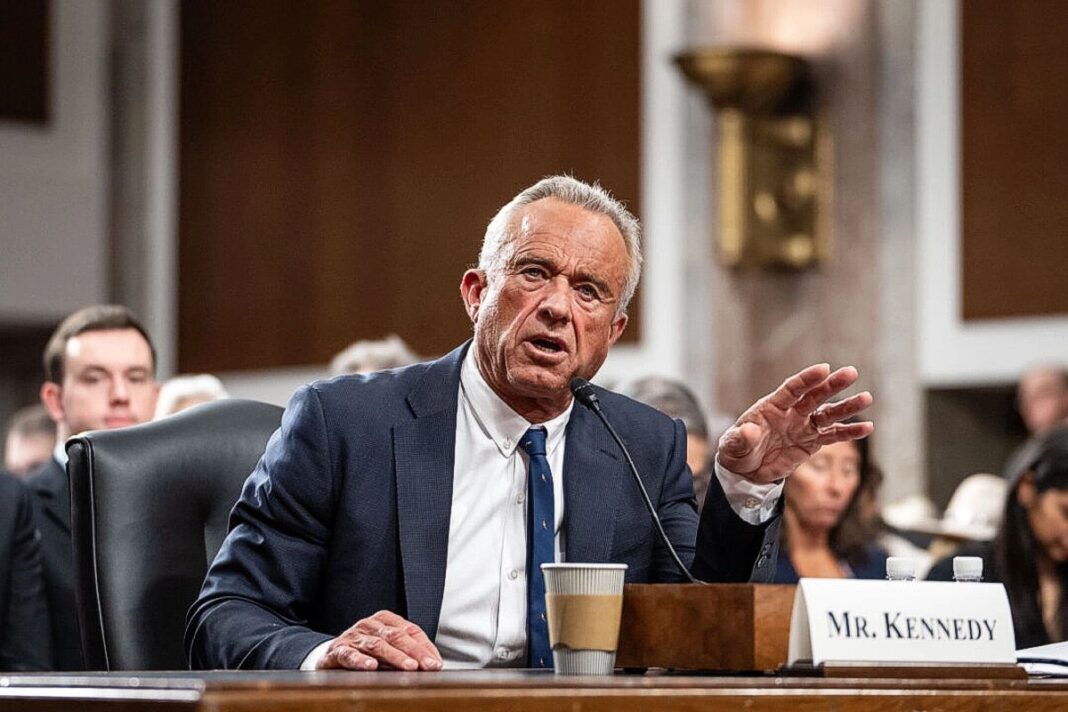The move is the most recent decision related to vaccine-related reform implemented by Kennedy and the Health and Human Services Department.
In his department’s latest move related to vaccine-related reform, Health and Human Services Secretary Robert F. Kennedy Jr. on Aug. 1 announced more repeals of federal policy that rewarded hospitals for reporting staff vaccination rates.
Kennedy said in a press release that the policy was coercive and denied informed consent.
“Medical decisions should be made based on one thing: the wellbeing of the person—never on a financial bonus or a government mandate,” Kennedy said. “Doctors deserve the freedom to use their training, follow the science, and speak the truth without fear of punishment.”
Created under the Biden administration’s Centers for Medicare & Medicaid Services (CMS) inpatient payment rule, the policy linked hospital reimbursement to staff vaccination reporting.
“Doctors and other providers should have the same autonomy to choose what’s right for their own individual health care needs as the patients for whom they care. Today’s announcement helps put that power back in their hands,” CMS Administrator Dr. Mehmet Oz said in the press release.
The move represents the most recent policy repeal under CMS. These moves are “part of a broader HHS effort to restore medical autonomy in federally funded programs and root out financial and regulatory pressures that incentivize physicians towards pre-scripted medical decisions rather than individualized, evidence-based care,” according to the press release.
Since taking office as HHS secretary, Kennedy has implemented multiple changes regarding vaccines.
The Food and Drug Administration in late May said it planned to limit access to future COVID vaccines to people 65 and older and individuals with underlying health conditions.
The agency also announced it would permit vaccine manufacturers to coordinate in-depth studies to assess the efficacy and safety of COVID vaccines in children and younger, healthy adults.
In recent months, HHS has also dismissed all 17 members of the Centers for Disease Control and Prevention vaccine advisory panel, ended the CDC’s COVID-19 vaccine recommendations for pregnant women and healthy children, and ordered the removal of mercury from influenza vaccines.
After it voted to advise officials to stop recommending influenza shots that have mercury, the remade Advisory Committee on Immunization Practices (ACIP) said it plans to look at multiple other vaccines.
Martin Kulldorff, the new chair of ACIP, said on June 26 that one proposal is to notify the CDC that young children should not receive the measles, mumps, rubella, and varicella (MMRV) combination immunization.
The agency instead would recommend that children under the age of 47 months get two separate vaccines: the measles, mumps, rubella shot, and the varicella, or chickenpox, vaccine.
Kulldorff noted that the change would reflect data that indicate the MMRV combination vaccine causes more febrile seizures. The CDC reported the same information in a background paper dated June 25.
A vote on the issue could happen as early as the next ACIP meeting, which is expected to be held in August or September.








